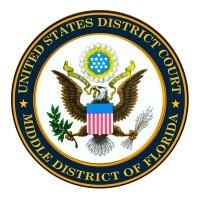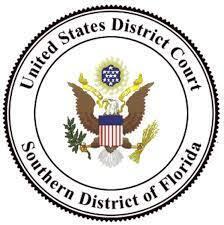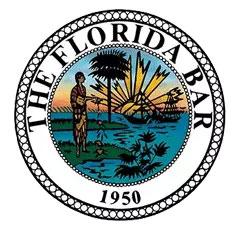Understanding the Differences Between Guardianship and Conservatorship in Florida
Miami Family Law Lawyers Help Residents Understand Guardianship and Conservatorship
Guardianship and conservatorship are two legal terms that often get used interchangeably, but they have distinct differences. In the state of Florida, as well as many other states across the country, understanding these distinctions is essential when dealing with matters related to the care and management of individuals who are unable to make decisions for themselves. Understanding the key distinctions between them is essential to make informed decisions regarding the welfare and finances of your loved one. In this context, a Miami family law attorney plays a crucial role in providing clarity and guidance, ensuring that the appropriate legal steps are taken to protect the interests and well-being of your family member.
Call Miami Family Law Group, PLLC at 305-520-7874 to consult with an experienced Miami family law attorney.
Defining Guardianship and Conservatorship in Miami, Florida
Guardianship and conservatorship are legal arrangements that grant an individual or entity the authority to make decisions on behalf of someone who is unable to do so themselves. Although commonly associated with the elderly or individuals with disabilities, these arrangements can also pertain to minors who need someone to act in their best interests.
In Miami, Florida, both guardianship and conservatorship are governed by specific laws and regulations that ensure the rights and well-being of the incapacitated person are protected.
Guardianship
When it comes to guardianship, the process begins with a petition filed in the appropriate court. The court will then determine whether the individual in question is incapacitated and in need of a guardian. In Miami, a guardian can be appointed for a variety of reasons, including mental illness, physical disability, or advanced age.
Once a guardian is appointed, they have the legal authority to make decisions regarding the incapacitated person's personal and medical care, as well as their finances. This can include decisions about where the person will live, what medical treatments they will receive, and how their assets will be managed.
In Miami, the court takes the selection of a guardian very seriously. They will consider the individual's qualifications, their relationship to the incapacitated person, and their ability to act in the person's best interests. The court may also appoint a guardian ad litem, who is a neutral party that represents the interests of the incapacitated person throughout the legal process.
Conservatorship
Conservatorship, on the other hand, is a legal arrangement that specifically deals with the management of an incapacitated person's finances and assets. In Miami, a conservator may be appointed if the court determines that the person is unable to manage their financial affairs due to incapacity or disability.
Once appointed, a conservator is responsible for managing the incapacitated person's income, paying their bills, and making financial decisions on their behalf. This can include managing investments, selling property, and ensuring that the person's financial affairs are in order.
In Miami, the court closely monitors conservatorships to ensure that the conservator is acting in the best interests of the incapacitated person. The conservator is required to provide regular accountings to the court, detailing their financial activities on behalf of the person they are representing.
It is important to note that both guardianship and conservatorship are legal arrangements that should not be taken lightly. The court's primary concern is the well-being and protection of the incapacitated person, and they will carefully consider all factors before appointing a guardian or conservator.
The Role of Family Law in Guardianship and Conservatorship Cases
Family law plays a crucial role in guardianship and conservatorship cases in Miami, Florida. These matters often intersect with various aspects of family law, including but not limited to divorce, child custody, and estate planning. Family law attorneys who practice in guardianship and conservatorship can navigate the complexities of these cases, ensuring that the best interests of the incapacitated person are upheld while considering the needs and concerns of the family members involved.
In guardianship and conservatorship cases, family law attorneys are instrumental in advocating for the rights and well-being of the incapacitated person. They work closely with their clients to gather all relevant information and evidence to present a compelling case in court. This may involve interviewing family members, medical professionals, and other key individuals who can provide insights into the incapacitated person's condition and needs.
Furthermore, family law attorneys play a critical role in addressing any potential conflicts that may arise among family members during guardianship and conservatorship proceedings. These conflicts can stem from differing opinions on the best course of action for the incapacitated person, disagreements over the allocation of financial resources, or disputes over visitation rights. The attorney's role is to mediate these conflicts and find solutions that prioritize the incapacitated person's well-being.
When it comes to divorce and child custody matters, family law intersects with guardianship and conservatorship cases in unique ways. In situations where a divorcing couple has a child with special needs or an incapacitated adult child, the issue of guardianship and conservatorship becomes paramount. Family law attorneys with experience in these cases can help navigate the legal complexities of determining custody arrangements, visitation schedules, and the appointment of guardians or conservators.
Estate planning is another area where family law and guardianship/conservatorship cases converge. Family law attorneys can assist individuals in creating comprehensive estate plans that address the potential need for guardianship or conservatorship in the future. This proactive approach ensures that the incapacitated person's interests are protected and that there is a clear plan in place for their care and financial management should the need arise.
Moreover, family law attorneys who practice in guardianship and conservatorship cases are well-versed in the specific laws and regulations governing these matters in Miami, Florida. They stay up to date with any changes in legislation and legal precedents that may impact their clients' cases. This allows them to provide informed advice and guidance, ensuring that their clients' rights are protected throughout the legal process.
Family law plays a multifaceted role in guardianship and conservatorship cases in Miami, Florida. Attorneys practicing in this area of family law are essential in navigating the complexities of these cases, advocating for the incapacitated person's best interests, and addressing any conflicts that may arise among family members. By understanding the intersections between family law, divorce, child custody, and estate planning, Miami family law attorneys can provide comprehensive legal support to ensure the well-being and protection of the incapacitated person.
Legal Terminology: Guardian vs. Conservator
Understanding the differences between guardianship and conservatorship is crucial when navigating the complex world of legal terminology. In the state of Florida, the terminology used to describe these roles sheds light on the specific responsibilities and powers bestowed upon the individuals appointed to these positions.
A guardian, in the context of Florida law, is someone who is entrusted with the authority to make personal, medical, and certain financial decisions on behalf of an incapacitated person. This person, commonly referred to as the ward, may be someone who is unable to make these decisions for themselves due to physical or mental limitations.
On the other hand, a conservator assumes a distinct role that is solely focused on managing the financial affairs of the ward. Unlike a guardian, whose responsibilities extend to personal and medical matters, a conservator's primary duty is to handle the financial aspects of the ward's life. This includes managing assets, paying bills, and making investment decisions, all with the best interests of the ward in mind.
It's worth noting that while the roles of guardian and conservator are often separate, there are instances where an individual or entity can be appointed to fulfill both positions. This dual appointment may occur when the circumstances warrant it, such as when a ward requires assistance with both personal and financial matters, and there is a trusted individual or organization capable of fulfilling these responsibilities effectively.
When it comes to legal matters, precision in language is paramount. The use of specific terminology, such as "guardian" and "conservator," helps to clearly define the scope of authority and responsibilities entrusted to these individuals. By understanding the distinctions between these terms, one can navigate the legal landscape with greater clarity and ensure the best possible care and protection for those who are unable to advocate for themselves.
Key Responsibilities of a Guardian in Florida
The role of a guardian in Florida carries significant responsibilities that are vital for the well-being and protection of the individual under their care. These responsibilities encompass various aspects of the person's life, ensuring that their needs and interests are met. Here are the key responsibilities of a guardian in Florida:
- Personal care and well-being: A guardian is responsible for ensuring the individual's physical and emotional well-being. This includes making decisions related to their living arrangements, healthcare, and access to necessary services.
- Decision-making:Guardians are authorized to make decisions on behalf of the incapacitated person, particularly when it comes to medical treatments, educational choices, and personal matters.
- Financial management:Guardians must manage the individual's finances prudently. This involves budgeting, paying bills, managing assets, and protecting the person's financial interests.
- Advocacy: Guardians act as advocates for the individual, ensuring their rights and interests are protected in legal proceedings and other matters. They may work closely with attorneys to represent the person's best interests.
- Regular reporting:Florida law requires guardians to provide regular reports to the court, detailing the individual's status, financial transactions, and any significant decisions made on their behalf. This transparency is crucial for ensuring accountability.
- Consultation: Guardians should consult with the individual when possible to understand their preferences and wishes, taking these into account when making decisions.
- Foster independence:Guardians should encourage and support the individual's independence and self-determination to the extent possible, while still providing necessary care and supervision.
- Maintain records: Accurate record-keeping is essential. Guardians should maintain detailed records of all financial transactions, decisions made, and communications related to their role.
- Court compliance:Guardians must adhere to all court orders and instructions regarding their responsibilities, seeking court approval for major decisions or changes in the individual's circumstances.
- Annual plans:Florida law requires guardians to develop an annual plan outlining the individual's care and financial management, which should be submitted to the court for review.
- Regular assessments: Guardians should arrange for regular assessments of the individual's physical, mental, and emotional well-being to ensure that their needs are continually met.
- Notification of changes: Any significant changes in the individual's condition or circumstances must be promptly reported to the court and relevant parties.
In fulfilling these responsibilities, guardians in Florida play a crucial role in safeguarding the interests and quality of life of the person under their care. It is essential for guardians to act diligently, ethically, and in accordance with Florida's laws to ensure the best possible outcomes for the individual.
The Duties and Authorities of a Conservator
The role of a conservator in Florida encompasses a range of important duties and authorities aimed at managing the financial affairs and assets of an incapacitated individual. These responsibilities are established to protect the best interests of the ward, maintain financial stability, and ensure proper care. Here is an overview of the key duties and authorities of a conservator:
- Managing financial affairs:One of the primary duties of a conservator is to oversee the financial matters of the ward. This includes managing bank accounts, investments, and other assets.
- Payment of bills and expenses: Conservators are responsible for paying the ward's bills, debts, and everyday expenses, ensuring that the ward's financial obligations are met.
- Investment decisions:They have the authority to make investment decisions on behalf of the ward, with the goal of preserving and growing the ward's assets.
- Property management:Conservators may manage the ward's real estate properties, including renting, selling, or maintaining them as needed.
- Financial planning: Conservators should engage in financial planning to ensure the long-term financial well-being of the ward. This includes creating budgets and financial plans to cover the ward's needs.
- Accounting and reporting:Conservators must maintain accurate financial records and provide regular accountings to the court, demonstrating how the ward's finances are being managed.
- Legal decision-making:While conservators primarily focus on financial matters, they may also have limited authority to make certain legal decisions on behalf of the ward, such as signing legal documents related to financial matters.
- Seeking court approval: In some cases, conservators must seek court approval for significant financial transactions or decisions, especially if their choices may affect the ward's assets or well-being significantly.
- Protection from financial exploitation:Conservators are responsible for safeguarding the ward's assets and protecting them from financial exploitation or abuse.
It is important to note that the specific duties and authorities of a conservator can vary depending on the court's orders and the individual circumstances of the ward. Additionally, conservators are subject to court oversight to ensure they fulfill their duties faithfully and in the best interests of the incapacitated person.
Determining the Need for Guardianship or Conservatorship
Determining the need for guardianship or conservatorship is often a delicate matter that requires a thorough assessment. In Florida, this decision is typically made by the court after considering the individual's capacity to make decisions, their ability to manage their personal or financial affairs, and the potential risks or harm they may face if no arrangements are put in place. It is crucial to involve medical professionals, family law attorneys, and other relevant parties to ensure a comprehensive evaluation and determine the most appropriate course of action.
Initiating Guardianship and Conservatorship Proceedings in Miami, Florida
Initiating guardianship and conservatorship proceedings in Miami, Florida is a legally intricate process. It typically involves filing a petition with the court, providing relevant documentation, and notifying all interested parties. Additionally, it may be necessary to have a hearing where evidence can be presented and the court can make an informed decision based on the best interests of the incapacitated person. Seeking guidance from an experienced Miami family law attorney who practices in guardianship and conservatorship matters is essential to navigate this process successfully.
The Guardianship and Conservatorship Hearing Process
During guardianship and conservatorship hearings, the court will carefully consider the evidence presented, as well as the testimony of witnesses and experts. This process ensures that all parties have an opportunity to voice their concerns and provide information relevant to the decision-making process. The court's ultimate goal is to appoint a guardian or conservator who can effectively safeguard the ward's physical, emotional, and financial well-being.
Factors Considered by the Court in Appointing a Guardian or Conservator
When deciding who should be appointed as a guardian or conservator, the court takes several factors into consideration. These may include the relationship between the potential guardian or conservator and the ward, the person's ability to fulfill their responsibilities diligently, their understanding of the ward's needs, and their overall suitability. The court's primary focus is always on what is in the best interests of the incapacitated person and their well-being.
Differences in Decision-Making and Financial Management
In guardianship and conservatorship cases, decision-making and financial management are distinct functions. A guardian is responsible for making personal and medical decisions, while a conservator focuses on the ward's financial affairs. It's essential that both roles are fulfilled carefully and responsibly, ensuring the incapacitated person's rights are protected and their needs are met with the utmost care and consideration.
Alternatives to Guardianship and Conservatorship in Florida
Guardianship and conservatorship may not always be the most appropriate arrangements for everyone. In Florida, there are alternatives available that aim to provide individuals with necessary support and services without stripping them of their autonomy. These alternatives can include the appointment of a healthcare surrogate, the establishment of a durable power of attorney, or the utilization of community-based resources designed to assist individuals with various degrees of incapacity.
The Importance of Legal Counsel in Miami Guardianship and Conservatorship Cases
When facing guardianship or conservatorship proceedings in Miami, seeking legal counsel is of the utmost importance. An experienced Miami family law attorney practicing in this area of law can guide you through each step of the process, ensuring that your rights are protected and the best interests of the incapacitated person are served. They can provide the necessary guidance, support, and advocacy needed to navigate this complex legal landscape effectively.
Frequently Asked Questions (FAQs)
Answer: The duration of the process varies depending on the complexity of the case, the individual circumstances, and any potential disputes that may arise. It can take several months or even longer to reach a resolution. Working with an experienced attorney can help streamline the process and ensure everything is handled efficiently.
Answer: Yes, guardianships and conservatorships can be terminated or modified if circumstances change or if it is determined that the arrangement is no longer necessary. Whether due to the ward's improvement in capacity or other factors, the court can reassess and make appropriate adjustments. A petition must be filed with the court to initiate the termination or modification process.
Answer: If someone disagrees with the appointment of a guardian or conservator, they have the right to voice their concerns during the court proceedings. There may be an opportunity to present evidence and argue against the appointment. It is important to consult with an attorney who can provide guidance on how to best present your case and protect your interests.
Answer: Yes, guardians and conservators have a legal obligation to act in the best interests of the ward and to fulfill their responsibilities diligently. If a guardian or conservator fails to fulfill their duties or acts negligently or unlawfully, they may be held accountable for their actions. The court can intervene and, if necessary, appoint a replacement guardian or conservator.
Contact Our Miami, FL Conservatorship Lawyers
In Florida, the distinctions between guardianship and conservatorship carry significant implications for the care and financial management of an incapacitated individual. A family law attorney from Miami Family Law Group, PLLC can be your invaluable ally. We can help you determine which arrangement best suits your loved one's needs, guide you through the legal requirements, and represent your interests in court when necessary. By seeking the guidance of an experienced Miami family law attorney and understanding the specific laws and regulations in Miami, you can ensure that the rights of incapacitated individuals are upheld and the appropriate measures are put in place to safeguard their overall well-being. Contact us by calling 305-520-7874 today.
Contact Miami Family Law Group, PLLC
Our attorneys are ready to help address your legal needs. Schedule an appointment by calling 305-520-7874 or contacting us online.










